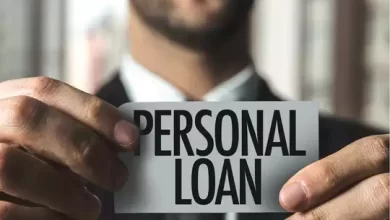Steps to Take If Your Personal Loan Application is Denied

Personal loans are unsecured loans with no limitations on how the borrower may utilize them. Since banks and NBFCs lack the security of an asset that has been pledged as security, unsecured lending is risky for them. Due to this risk, banks have tightened their lending standards and have numerous internal requirements that must be met before any personal loans are accepted.A personal loan might be turned down for a number of reasons because it is a flexible unsecured loan. Multiple personal loan rejections could result in more hard inquiries, which would ultimately lower your credit score. Hard inquiries are a sign that you are eager to obtain additional credit, and lenders may interpret this as a dangerous borrower.
This post is for people who have had personal loan applications denied and are seeking strategies to reapply.
Find out the reasons for loan rejection
It will be difficult for you to know what efforts you should take to strengthen your position before reapplying for the loan if you don’t know the reason why your application was rejected. Six general reasons for personal loan rejection may be identified, though specifics differ from lender to lender because each one has its own internal procedures for determining risk and trustworthiness.
- Low credit score
- Unstable employment
- Insufficient income
- Working in a delisted private company
- Not falling into the age limit
- Residing at a location that is on the defaulter list
Personal loan rejection criteria
Every bank has unique requirements for approving personal loans. The reasons for personal loan denial may differ from those for other banks’ denial criteria. The following are the key factors that can cause your personal loan application to be denied.
Employment requirement
Doctors, Chartered Accountants, employees of private limited firms, and employees of public sector organizations, including central, state, and municipal bodies, are the only professions to which banks offer personal loans. Your personal loan application will likely be denied if you do not fit into this group.
Even if you work for a private company occasionally, your personal loan application may still be denied. This can occur if the business you work for falls into the bank’s category of delisted companies.
Age criteria
You must be at least 21 years old and not older than 60 in order to be eligible to apply for a personal loan in India. Your application for a personal loan would be denied if you did not fit this age requirement. The bank places an age restriction on loans because they want to ensure that you will be able to repay them easily.
Insufficient income
Any lender will accept as evidence that you can pay back a personal loan, a regular source of income. Every bank has a minimal yearly or monthly income threshold to be eligible for a personal loan. Banks have also established a minimum monthly pay cap. Your application for a personal loan can be turned down if you are unable to fulfill this minimal income criterion.
Career instability
The lender may conclude that you are unreliable to the company you are working for if you frequently change jobs. Considering that a personal loan is an unsecured loan for which you are not required to put up any collateral, it could be challenging to obtain one.
The borrower must have been employed steadily for at least two years and, more crucially, for the past six months with the current company.
Low credit score
Credit bureaus create a credit score based on your financial behaviour. A high grade shows how financially responsible you are. The creditworthiness of the borrowers is a factor that lenders value highly.
Your ability to get a personal loan will be hampered by having bad credit. This may have been a major factor in the denial of your request for a personal loan.
Multiple applications in a short time
Another factor that can prevent you from getting a personal loan is this one. Too many loan applications give the lender the impression that you are credit-hungry and could become a risky client.
Six general reasons for personal loan rejection may be identified, though specifics differ from lender to lender because each one has its own internal procedures for determining risk and trustworthiness.
Evaluate the credit score
Credit ratings are crucial and serve as the basis for approving or rejecting any loan. Lenders only assess your income and repayment capabilities after you have cleared the credit score barrier.
Given that personal loans are unsecured loans, it’s critical for applicants to have a high credit score.
to be accepted for the loan. You can check your credit score here if you’re unsure of it. Examine the causes of your low credit score if you have one. It can be because of mistakes on your credit record or because of the way you handle credit.
Your credit report’s errors may be disputed. Find out how to properly dispute mistakes on your credit report. If a clerical error, such as a name that is misspelled or anything similar, is the cause of the problem, these minor errors can be fixed, and then you can reapply for the personal loan.
If your score is poor, you should first take care of your bad accounts. Once the issue has been rectified, you can raise your credit score by using score-building items, such as loans or credit cards. Additionally, since there is less risk involved, banks are more likely to grant secured loans or credit cards. At the same time, watch out for missed payments and use your credit card no more than 30% of the available credit.
Check if you meet debt to income ratio
The loan may occasionally be turned down because of low income. You can submit an application for loans that are made available to those with lower incomes in this situation. If you think the amount requested in the initial application is on the high side, you might consider reapplying with a lower amount.
If you believe that the majority of your present debt is unsecured, you might want to pay off some of them. The right balance of secured and unsecured borrowings is what lenders seek.
Get your documents right
One of the most popular types of loans is the personal loan since they require less paperwork and are handled more quickly. The following documents are typically needed for processing personal loans:
- Identity proof
- Address proof
- Income proof
- Bank statements
If your documents are in order, confirm it with your lender one more time. If not, you could organize their organization before reapplying for a loan.
Look for alternative options
Traditional lenders like banks and financial organizations like NBFCs frequently have very severe lending requirements, which makes it challenging for self-employed people and people with bad or no credit to obtain loans approved.
You might search for alternate financing choices if you lack time and urgently need money.
Numerous fintech lenders operate in the loan industry and target low-income, self-employed, and poor credit score populations. They lend to a larger range of people because they add alternative data to a person’s credit score. Consider options like a loan against a fixed deposit or a loan secured by gold.
Conclusion
Rejection for a personal loan does not necessarily spell the end of your credit journey; in some cases, it can even prove to be a blessing in disguise that helps you improve your credit knowledge and address any problems that might arise during a more serious emergency.




